qingdao olympic sailing center
qingdao olympic sailing center
Qingdao Olympic Sailing Center Scenic Spot is located in Fushan Bay, Qingdao City, and Qingdao's landmark scenic spot - May 4th Square offshore, covering an area of about 45 hectares. It is the venue for the 2008 Beijing Olympic Sailing Competition and the 29th Paralympic Sailing Competition. The Olympic Sailing Center Scenic Spot is the only "National Coastal Tourism and Leisure Demonstration Zone" in China.
Qingdao is known as "the capital of sailing boats". As the scenic spot that best reflects Qingdao's urban characteristics and city image, the Olympic Sailing Center scenic spot not only has the elegance of flying sails, but also has ten old scenic spots of Qingdao representing Yandao Autumn Tide, a new era of Qingdao landscape gull flying rainbow, and many thrilling entertainment experiences. It is a must-see scenic spot for tourists to come to Qingdao.
Scenic Spots
The Ouxiang Rainbow
Qingdao New Era Landscape Representative, the landmark ornamental spot of gull appreciation. Qingdao has the reputation of "Eastern China Migratory Bird Station". Every year, there are more than 100,000 seagulls coming to the island city for winter. Qingdao has carried out the "Operation to Retain Seagulls" for 20 years, which has increased the number of seagulls from 2000 to more than 100,000. It has become a new era landscape in Qingdao. On the rainbow bridge in the early morning, the blue sea sky, the seagulls flying, and the human gulls playing each other are beautiful!
A Blessing Lighthouse
The origin of the name of the prayer tower is that Qingdao people, who have been occupied by foreign enemies for many times, yearn for a peaceful and peaceful life. When the tower was first built, it mainly illuminated the way for fishermen to go home at night. Because the lighthouse stands in the sea and looks at the Taiping Mountain, it is more like the goddess of the sea praying for the peace of Qingdao people, so it was named the prayer lighthouse. The tower was rebuilt in 2006, 20.08 meters high, meaning the 2008 Olympic Games. It is also the coordinate of Qingdao Station for the large international sailing events (Cliber, International Limits, Volvo, etc.). However, people still hope that the city government and the Lighthouse of Qingdao Financial Center can continue to pray for the political and economic prosperity and development of Qingdao City.
Autumn Tide of Yandao
"Yandao Autumn Tide" is one of the ten old sceneries in Qingdao. Yaner Island stands out in the sea, and there are cliffs. Every autumn, the wind and waves are high and impact the cliffs, causing high waves to spew like snow. In the golden autumn season, whenever the south wind is strong and the astronomical tide is high, the ear-shaking sound of the waves can be heard in the distance. Before approaching, the waves are surging and rolling like ten thousand horses, the scene is very spectacular and amazing.
Walking in Valentine's Dam
The Olympic Sail Valentine's Dam is the Main Breakwater of the Olympic Sail Center. In the post-Olympic period, the municipal government devotes itself to the construction of the Valentine's Dam and a bar street in view of the pure scenery of walking here. When the lover strolls here, he can feel the uniqueness of the sea and sky, the romance of the blue sky and white tower, and the spectacular scene of the Olympic Sail Competition venue "thousands of sails, hundreds of rivalries". "Walk hand in hand through the Valentine's Dam, no matter how stormy it is!"
Olympic Humanistic Landscape Area
Charming Maritime Theatre
Spray and style outline China's first maritime theatre, known as "China's Sydney Opera House". The theatre uses high-tech means such as water curtain landscape, laser art, music fountain, sea music fireworks and city night scene brightening to create a large-scale live performance with Qingdao characteristics. The Maritime Theatre Dam is the starting point of the Chinese Navy's parade-style sea voyage. Most of the Chinese people stand at this dock to review the style and strength of the Chinese Navy.
Olympic Sail Museum
One of the three major Olympic museums in China. "Olympic Gallery, Sailing World, Award Presentation Stage" is the three major themes that can not be missed in the Olympic Sailing Museum. The Olympic Sailing Museum takes Olympic Sailing and Olympic Sailing Culture as its main line, and uses modern display means to form a large-scale national thematic museum with the interaction of indoor exhibitions and outdoor scenes.
Windbell Flag Array
The square set up by the flag of all countries at Gate 2 of the Olympic Sailing Center is the Flag Matrix Square, where the flags of all participating countries hang, symbolizing world friendship and peace, "One World, One Dream". There is also a five-ring sculpture with a three-dimensional sense, which symbolizes that athletes from all countries are motivated by the spirit of the Olympic Games, constantly making progress and winning good results. Stopping in the square, you can hear the wind bell burst, also known as the wind bell flag burst. In summer, the wind is fresh and cool. Listening to its sound can make people calm and refreshing. Experience the unique of Qingdao Olympic Sail by auditory way. Listen carefully to the voice of the wind bell. If you can hear a good rhythm, it will be good luck (rhyme).
Olympic Torch Dam
The sculpture stands at the end of the Olympic Memorial Wall pier 100 meters east of the entrance 1 of the Olympic Sailing Center. In the 2008 Olympic Sailing Competition, the torch of Paralympic Sailing Competition was burned in Qingdao, which was the torch ignited by the Olympic Sailing Competition at that time. The giant sculpture of the Olympic rings on the back is the most obvious and classical manifestation. The rings are located on the wharf deep in the sea and are the best place to commemorate the Olympic Games across the sea from the May 4th Square.
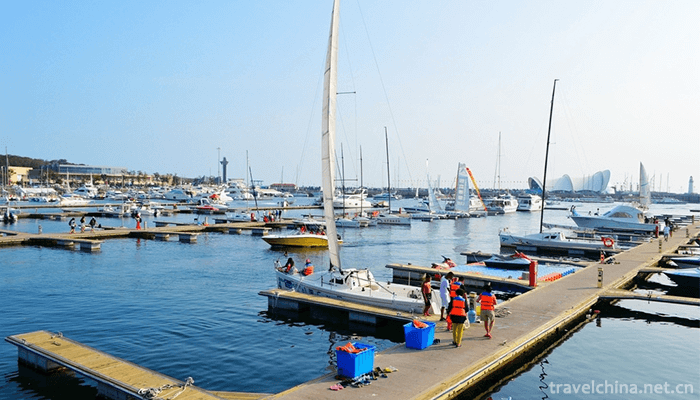
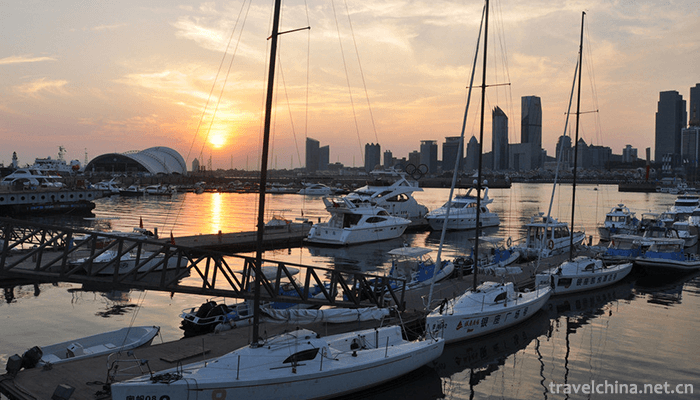
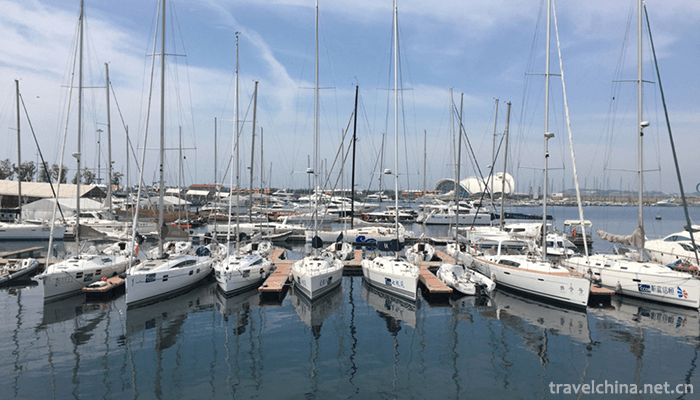
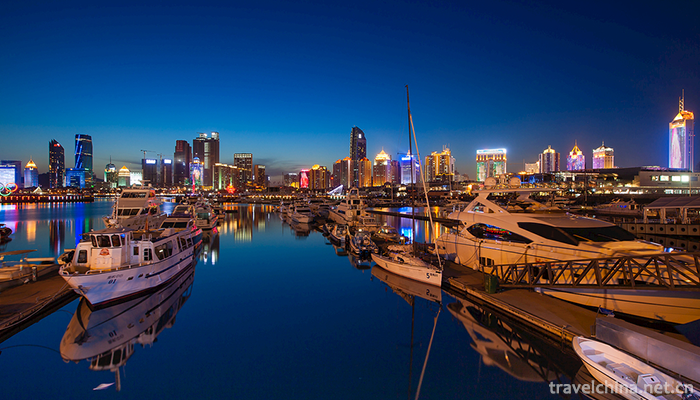
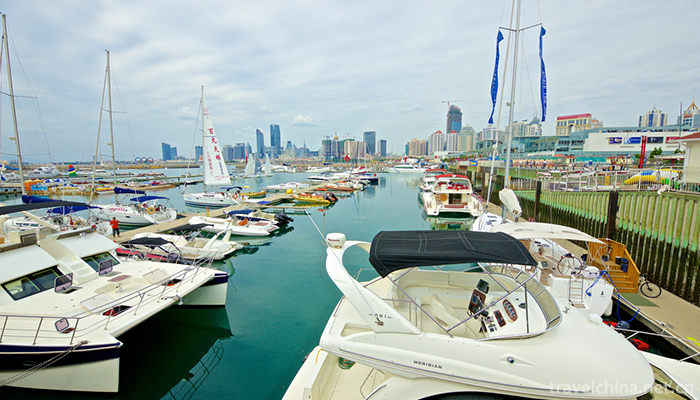
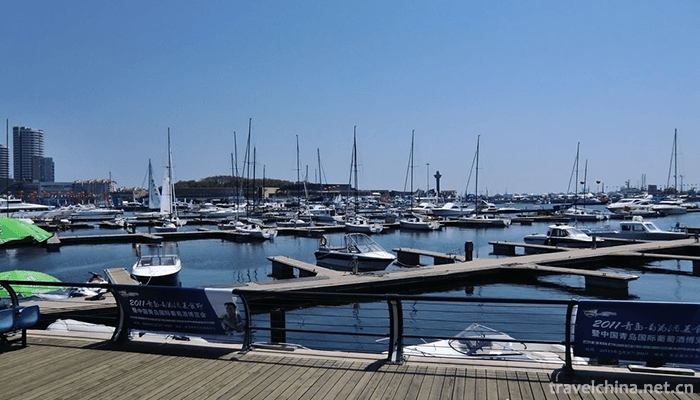
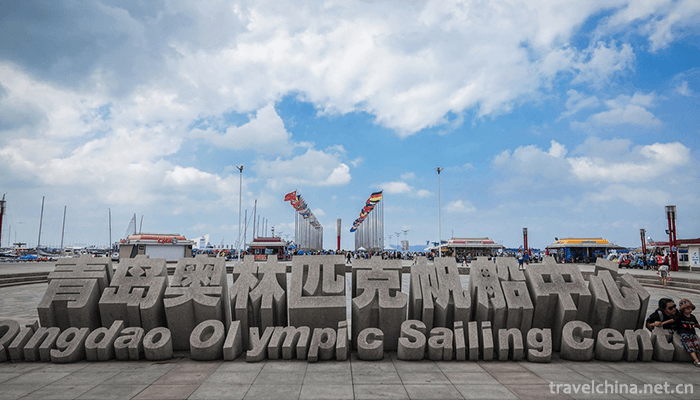
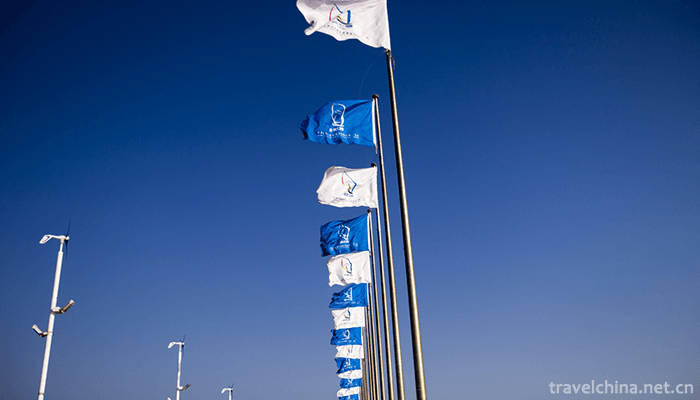
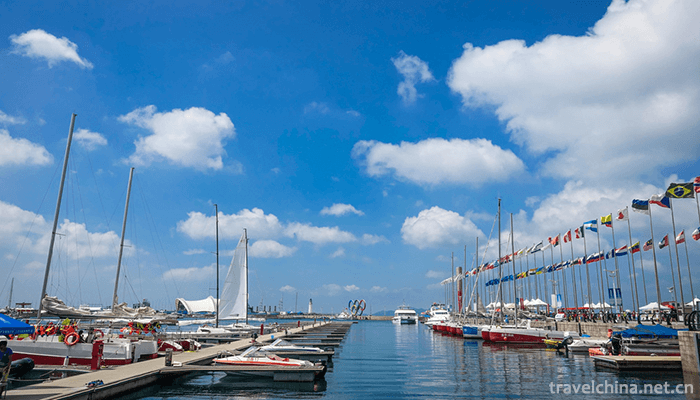
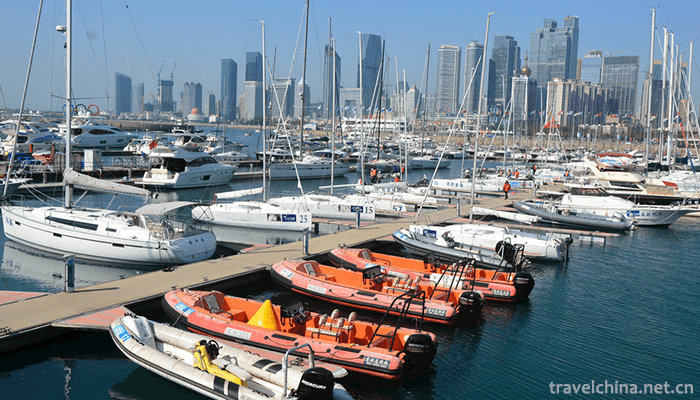
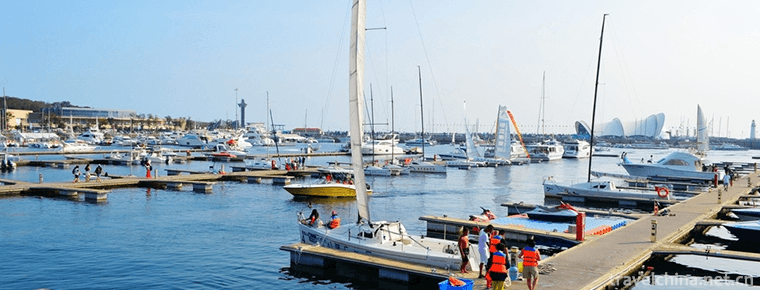
-
1.Yulong Snow Mountain
Yulong Snow Mountain is a snowy mountain group in Lijiang City, Yunnan Province
Time 2018-10-17 -
2.Hometown of Zhu De
Zhude Hometown Scenic Spot: National AAAAA Tourist Scenic Spot, National Key Cultural Relics Protection Units, National Patriotic Education Demonstration Base, National Anti-corruption Education Base,
Time 2018-12-12 -
3.The daxiangguo Temple
Daxiangguo Temple, formerly known as Jianguo Temple, is located in the western section of Kaifeng Freedom Road. It is a famous Buddhist temple in China. It was founded in Tianbao, Northern Qi Dynasty
Time 2019-01-07 -
4.Korean Crane Dance
Crane Dance of the Korean Nationality has a long history and is a unique dance performance form of the Korean Nationality in China. It has the national characteristics and the value of artistic resear
Time 2019-04-16 -
5.Automative lighting
Car lights are also known as "teasing Momei" and "running a dry boat". It is mainly performed around the Spring Festival.
Time 2019-04-16 -
6.Jiangxi opera
Gan Opera is a traditional opera which sings high-pitched, random-play, Kun Opera and other tunes in a multi-tone way. The dialect used is Gan dialect. Its origin and predecessor
Time 2019-04-30 -
7.Kazakh Aytes
Kazakh Aytes is a typical representative of Kazakh folk art, a competitive form of performance, is the most abundant content of Kazakh folk oral literature, the most influential literary type among th
Time 2019-05-02 -
8.Miao Jia Li
Jiali, Miao is called "jaxlil". In the context of Miao language, "Jiali" is a synthesis of the semantics of "philosophy", "truth", "reason" and "
Time 2019-06-05 -
9.Netboat Club
Netboat Club is an ancient traditional folk custom and folk religious and cultural activities. During the period of the Republic of China, around the Qingming Festival and the Mid-Autumn Festival, ten
Time 2019-06-26 -
10.Brick and plastic
Brick sculpture is the handicraft of folk craftsmen. It is made of mud into various animal models. Some of the images are realistic, but more are romantic and exaggerated ways of expression, the shape
Time 2019-08-10 -
11.Stir fried pork with salted vegetables
Stewed pork with dried plum is a famous traditional flavor dish in Shaoxing, Zhejiang Province. The main raw materials are dried plum and streaky pork. Dried vegetables absorb meat fat to remove astri
Time 2020-03-18 -
12.Neijiang administrative division
Neijiang City governs 5 county-level administrative divisions (Municipal District 2, county-level city 1, county-2), and 83 township level administrative divisions (street 13, town 70). It covers an area of 5386 square kilometers and has a population of 4.27 million.
Time 2020-12-16